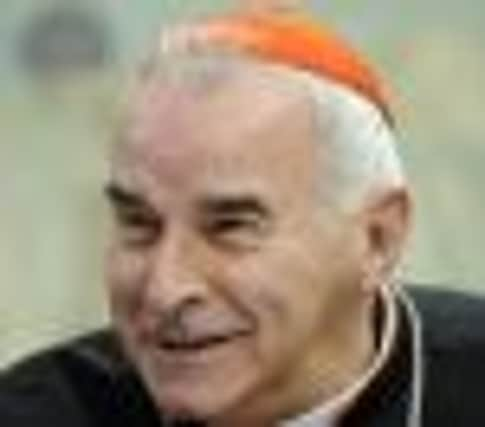SNP set to move on gay weddings


Under the proposal, ministers would pass same-sex marriage legislation with the caveat that the ceremonies must be held in a civil setting.
The same plans are under discussion in England and could be presented to religious opponents of gay marriage in Scotland as a guarantee that they would not be forced to conduct same-sex weddings.
Advertisement
Hide AdAdvertisement
Hide AdThe move would offer assurance to religious groups opposed to gay marriage that fear a legal challenge from equality campaigners if they refused to conduct same-sex ceremonies.
But last night equality campaigners claimed such a compromise could end up “annoying everyone” by failing to give gay couples the same rights as heterosexuals, while still upsetting religious groups opposed to legalising same-sex marriage.
Health secretary Nicola Sturgeon will now sift through more than 50,000 responses.
Aware of the strength of feeling, Sturgeon made it clear when announcing the consultation in September that while the Government “tends towards the view” that same sex marriage should be introduced, it would listen to opinions and not compel religious groups to take part.
The consultation asked interested parties whether gay marriage ceremonies should be conducted in a religious setting, if the church involved agreed. Some churches fear that this could leave them open to legal action for discrimination if the move was approved and they refused to comply.
Scotland on Sunday has learned that the compromise under consideration would rule out religious ceremonies altogether. That would fall in line with proposals in England, where gay marriage is also being debated but only in civil ceremonies.
Bodies opposed to the proposals include the Church of Scotland, the Scottish Episcopal Church and the Catholic Church in Scotland. However, several other smaller religious groups and the Humanist Association, say they want to carry out the ceremonies and have written to the First Minister, Alex Salmond, warning they would “strongly oppose” any attempt to restrict same-sex marriages to purely civil ceremonies, claiming their “freedom of belief is under threat” if the new laws allow civil gay marriages only.
The signatories to the letter include Bishop Richard Holloway, Former Primus of the Scottish Episcopal Church, representatives from the Scottish Unitarian Association, the Quakers and members of the Liberal Jewish community.
Advertisement
Hide AdAdvertisement
Hide AdThe groups agree there should be an “opt-out” for those religious bodies that do not wish to conduct same-sex marriages, but are concerned opponents are trying to “impose their views on all other faith groups and the rest of society”.
However, the organisation Scotland For Marriage, which is fundamentally opposed to any new definition of marriage that includes same-sex relationships, insists the institution is defined as a union between a man and a woman.
The row comes as Cardinal Keith O’Brien, the leader of Scotland’s Catholic Church, declares in the Catholic press this weekend that “no compassionate society” should introduce legislation that promotes same-sex relationships.
“The evidence is clear: same-sex relationships are demonstrably harmful to the medical, emotional and spiritual wellbeing of those involved,” he claims. “These measures were not in the best interests of our society. No compassionate society should ever enact legislation to facilitate or promote such relationships. We have failed those who struggle with same-sex attraction and wider society by our actions.”
But Tom French, policy coordinator for the Equality Network, said last night they would oppose any plan to stop same-sex religious ceremonies, even if civil ceremonies were introduced.
He said: “The whole point here is that we are campaigning for equality. And the whole point about religious freedom is that it protects the rights of smaller religions such as those that do want to carry out same-sex ceremonies. Simply all we want is the same laws for straight couples as there are for same-sex couples for both civil and religious marriage.”
A spokesman for Scotland For Marriage said: “Marriage is between one man and one woman. We draw on a well-researched evidence base which shows that, although death and divorce may prevent it, children do best when raised by their married mother and father.”
A Scottish Government spokesperson said: “We have given an assurance that all opinions will be listened to, no final views have been reached and therefore no decisions have been taken.”